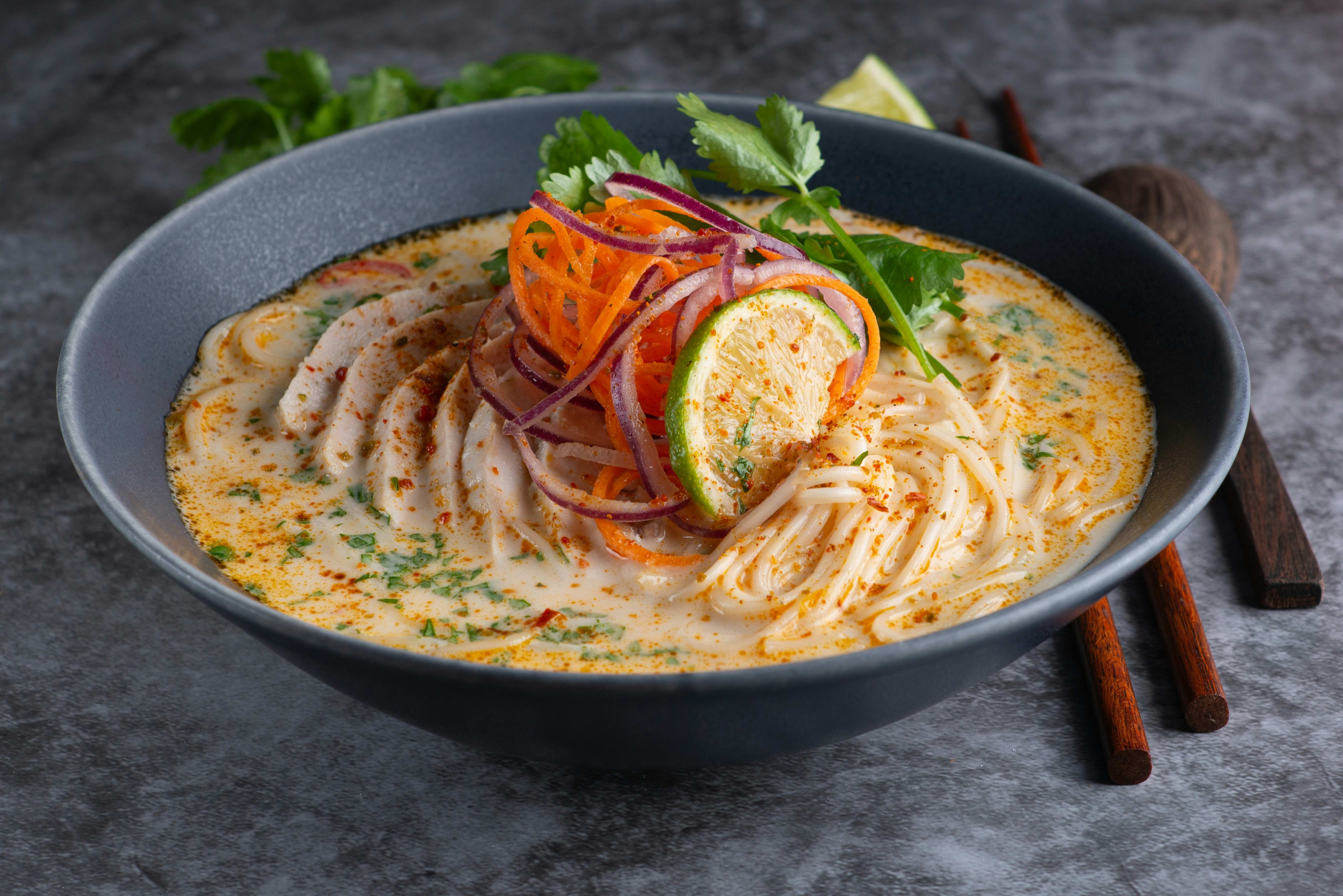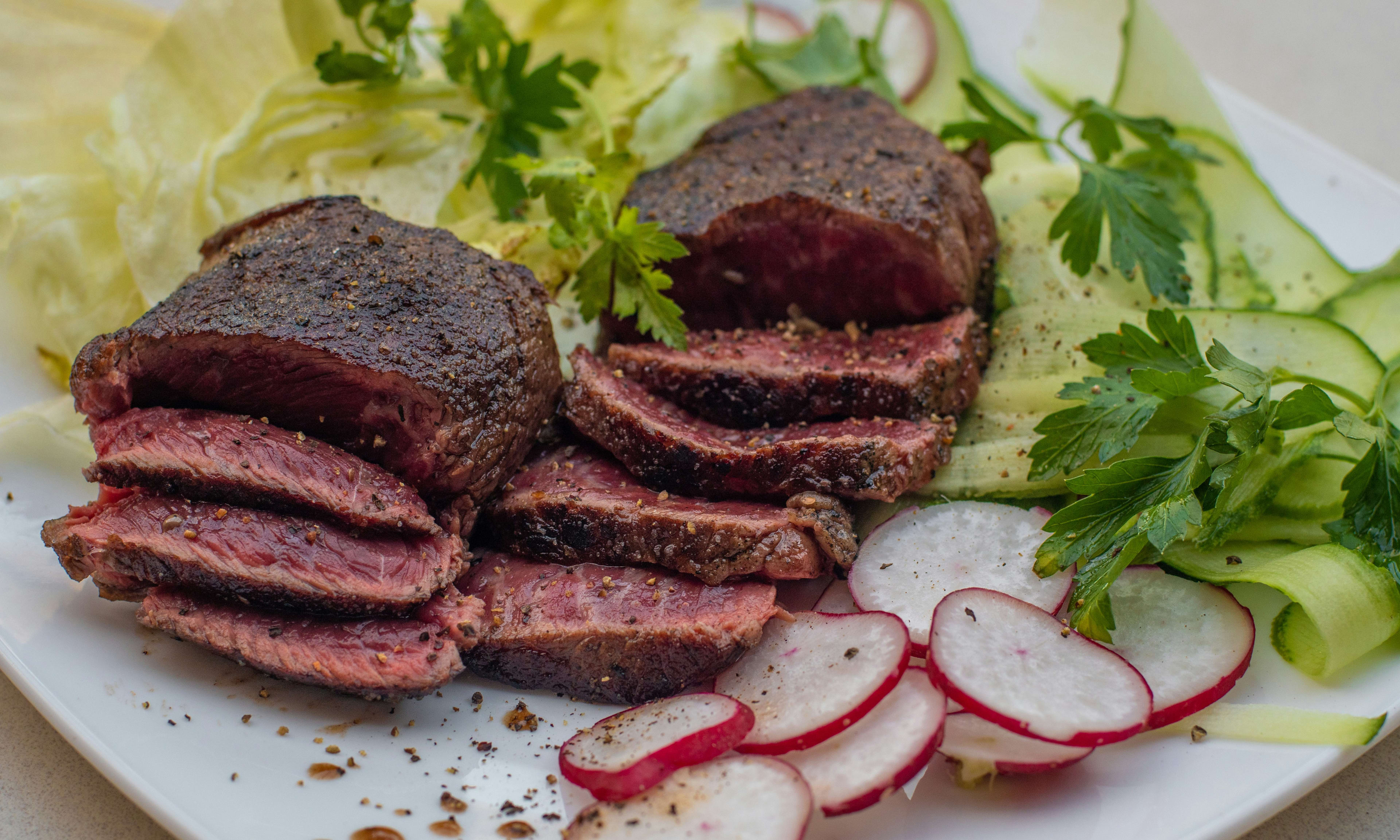Unpacking the Flexitarian Diet: What It Means for You;
Cutting back on meat doesn't mean confining yourself to salads. With flexitarian recipes, you can stick to your vegetarian dishes and eat meat occasionally to keep things interesting. In a flexitarian diet, fruits, vegetables and legumes are the main ingredients, but you're still allowed to eat meat from time to time. No specific foods are off-limits, but the goal is to focus only on lean meats. For instance, you should avoid pork and fatty cuts of beef and instead eat dishes with lean cuts of beef, fish, chicken, or turkey. If you are trying out a flexitarian diet, our meal kits can help you stick to your diet with easy-to-follow recipes. ;

Savour Variety: What's on Your Plate
If you have been trying to switch from a meat-based diet to vegetarian recipes, consider starting out with a flexitarian diet. Since the diet focuses on fresh and whole foods, you can cut back on meat gradually. The best part is that you don’t have to give up your favourite dishes. Kick off your flexitarian diet and add variety to your dinners with a HelloFresh grocery delivery. HelloFresh offers a wide range of delicious and nutritious meals that make it easy to maintain a balanced diet. Additionally, experimenting with new recipes can make your culinary experience more enjoyable and exciting.
Flexibility at Its Finest: You're in Control
Sticking to a strict diet is confining and can be overwhelming to follow, especially when you are starting out. For instance, meat recipes are especially tempting when first switching to a vegetarian diet. A flexitarian diet provides flexibility by reducing your meat intake and allowing you to indulge in your cravings. Just as the name suggests, flexitarianism combines flexibility and vegetarianism. That means there are no rules or restrictions, and you don't have to count calories. This approach makes it easier to maintain healthy eating habits while still allowing you to enjoy your favourite foods in moderation.Enhancing Your Health: The Nutritional Upside of Flexitarian Eating;
Enjoy nutrient-dense foods
Flexitarian dishes involve the consumption of nutrient-dense food types like vegetables and whole foods. The nutritional components in plant-based dishes have minimal calories.
Aids in weight loss
Plant-based foods tend to have lower calories and can promote your weight loss goals. Most vegetable dishes contain fibre, which makes you feel full and eat less.
Keep your blood sugar levels
A flexitarian diet emphasises plant foods low in added sugars and high in fibre. You keep your blood sugar levels low and minimise the chances of diabetes.
Boost your heart health
Flexitarian dishes are rich in healthy fats, which are good for heart health. Vegetables consist of fibre and antioxidants, which reduce your blood pressure and increase good cholesterol for a healthy heart.
Enjoy nutrient-dense foods
Flexitarian dishes involve the consumption of nutrient-dense food types like vegetables and whole foods. The nutritional components in plant-based dishes have minimal calories.
Aids in weight loss
Plant-based foods tend to have lower calories and can promote your weight loss goals. Most vegetable dishes contain fibre, which makes you feel full and eat less.
Keep your blood sugar levels
A flexitarian diet emphasises plant foods low in added sugars and high in fibre. You keep your blood sugar levels low and minimise the chances of diabetes.
Boost your heart health
Flexitarian dishes are rich in healthy fats, which are good for heart health. Vegetables consist of fibre and antioxidants, which reduce your blood pressure and increase good cholesterol for a healthy heart.
Embracing Flexibility: The Top Benefits of a Flexitarian Lifestyle;
Flexitarian diets offer numerous benefits for your health.
You pack up healthy nutrients in the vegetables, which reduce your risk of getting heart diseases and cancers. Additionally, Flexitarian diets offer numerous benefits beyond just health. By incorporating more vegetables and plant-based foods, you can significantly reduce your carbon footprint, which is beneficial for the environment. Eating less meat helps conserve natural resources such as water and energy, making this dietary approach more sustainable.
More good news is that a flexitarian diet can be more affordable, as plant-based foods often cost less than premium meat products. Embracing this lifestyle encourages a greater variety in your diet, introducing you to new and diverse foods that you might not have tried otherwise, thereby enhancing your culinary experiences.
Finally, the flexibility of this diet makes it easier to maintain in the long term compared to strict vegetarian or vegan diets. This allows you to tailor your eating habits to suit your personal preferences and lifestyle.
Why HelloFresh?;

Recipes you’ll love

The best of the best in every meal

Flexibility that suits your needs

Wholesome and delicious
What our customers say:

